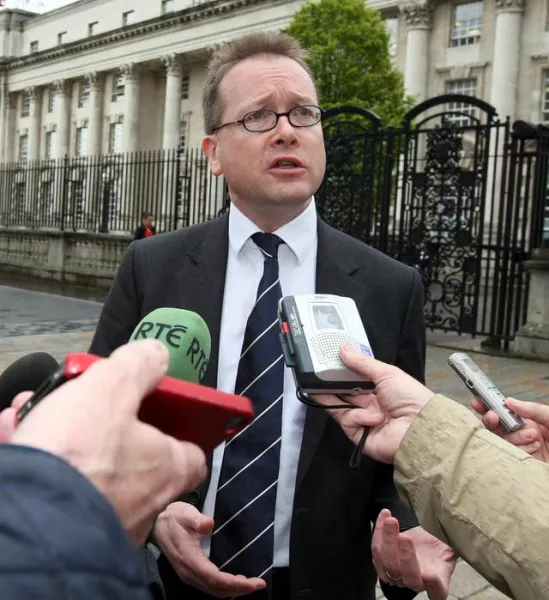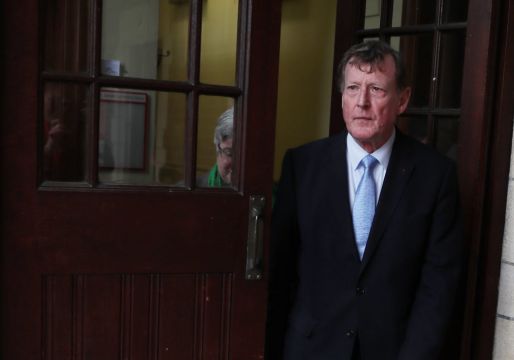The High Court in Belfast is set to deliver its judgment in a challenge by unionists to the legality of the Northern Ireland Protocol.
The judicial review was launched in the name of unionists from across the UK, including former DUP leader Arlene Foster, former UUP leader Steve Aiken, TUV leader Jim Allister, Belfast Agreement architect Lord Trimble, former Brexit Party MEP Ben Habib and Baroness Hoey.
The Protocol is part of the Brexit deal and is deeply unpopular with unionists as it creates a trade border between Northern Ireland and Great Britain and means EU rules governing trade in goods still apply in the North.
High Court judge Mr Justice Colton will deliver his ruling on Wednesday.

During a hearing last month, legal counsel for the unionist leaders argued that the Protocol is unlawful because it breaches the Acts of Union and the 1998 Good Friday Agreement.
Former Northern Ireland attorney general John Larkin QC had argued that the Protocol breaches Article 6 of the Acts of Union which created the United Kingdom of Great Britain and Ireland in 1800, by leaving Northern Ireland inside the EU’s customs union.
He further claimed that the Protocol ran contrary to the Northern Ireland Act, the legislation which brought the 1998 Good Friday Agreement into law.
Mr Larkin told the court that the Act states that “Northern Ireland in its entirety remains part of the UK” unless a majority of people vote otherwise in a referendum.
He said: “If the power to make law for Northern Ireland can be given to Brussels, it can be given just as legally to the Oireachtas (Irish Parliament).”
One of the affidavits read out in court as part of the judicial review was from Lord Trimble, who wrote that “the Protocol is not consistent with the principle of consent enshrined in the Good Friday Agreement”.

His affidavit said: “We endured 35 years of a terrorist campaign, terrorists did not succeed. The main object of the Belfast Agreement was to bring that terrorism to an end and present a democratic way forward.
“The Protocol ignores the principle of consent. Northern Ireland is no longer fully part of the UK, it has been partly annexed by the EU.”
But in response, a lawyer for the UK government told the High Court that the Northern Ireland Protocol is an “orthodox application of Parliamentary sovereignty”.
Tony McGleenan QC said the applicants were effectively “asking the court to ignore the will of Parliament expressed in primary legislation”.
Mr McGleenan argued that the North remains within the UK’s custom territory so there is no breach of the Acts of Union.
Whatever judgment is delivered on Wednesday is likely to be appealed against and the case could end up before the Supreme Court.







